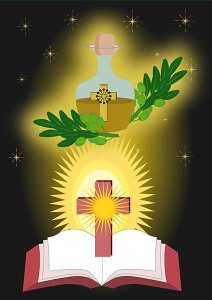On Mondays, I answer questions frequently asked by those considering a return to the Catholic Church. How do I know this stuff? I was away for more than 30 years myself, and am the co-author of When They Come Home: Ways to Welcome Returning Catholics, a book for pastors and parish leaders interested in this ministry.
How close to death do I have to be to receive the Sacrament of the Anointing of the Sick and of the Dying?
Have you begun to be in danger of death, due to old age or illness such as a pending surgery or medical treatment? Then it’s the appropriate time to seek out a priest and request this beautiful sacrament. You don’t have to wait until you’re at death’s door. Its effects include uniting the recipient to Christ’s passion for the good of the entire Church; providing the strength to endure what is to come; providing

forgiveness if the person wasn’t able to receive the sacrament of reconciliation; assisting in the restoration of health, if it is to be; and preparing the person if necessary for the passage to eternal life. The priest will lay hands on the person’s head, and then anoint him or her on the forehead and hands with blessed oil.
If you are not in danger of death but have or are approaching a health challenge, it’s certainly appropriate to request a blessing for restored well being.
Unlike baptism and some of the other sacraments, this isn’t necessarily a one-time thing. If your illness becomes more severe or your condition more pronounced, you may receive the sacrament again. And, if a new medical challenge arises, it’s also fine to ask for the sacrament again.
Those who are dying receive the Eucharist one last time, and this is called viaticum. The word is from the Latin, and means “preparation for the journey.”